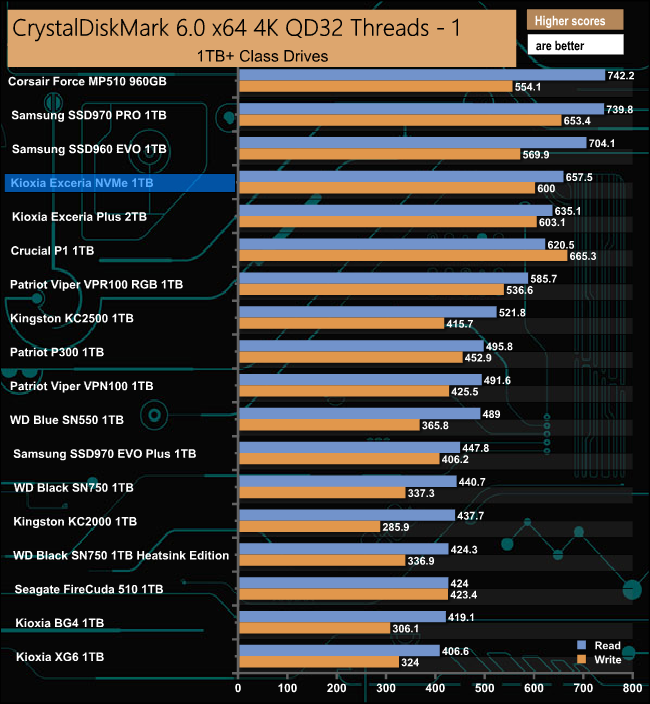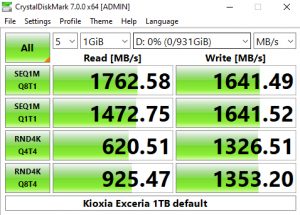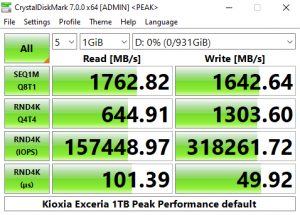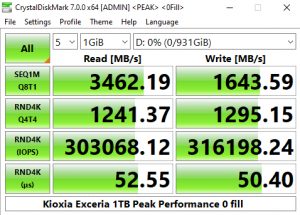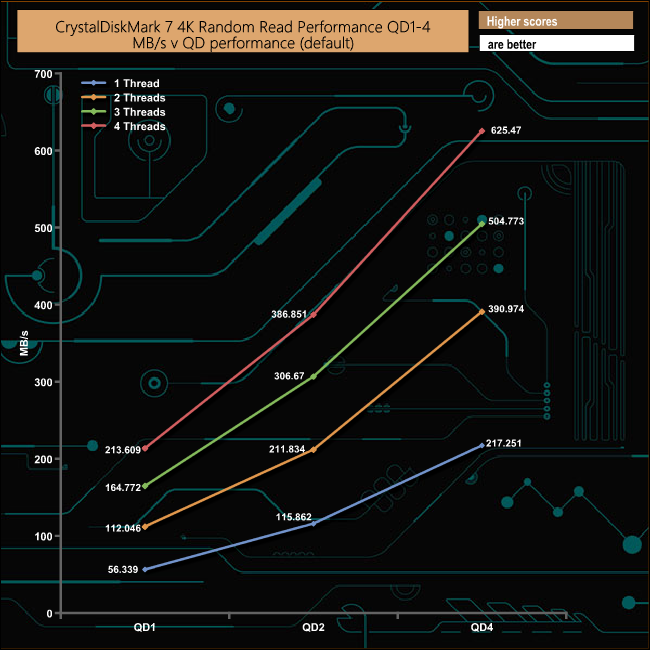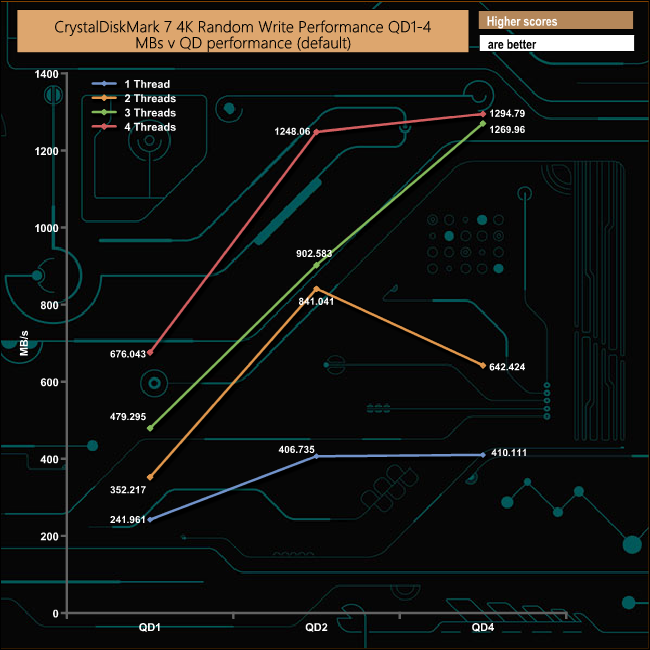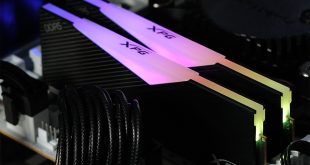CrystalDiskMark is a useful benchmark to measure theoretical performance levels of hard drives and SSD’s. We are using v6 and 7.0.
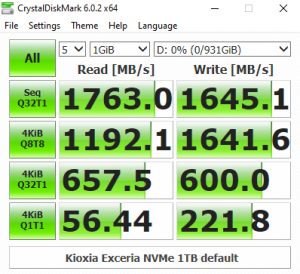
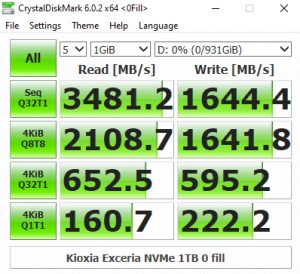
The Kioxia Exceria NVMe 1TB performs surprisingly well at a deeper queue depth. From looking at the two benchmark result screens, it seems that the controller has a preference for handling compressible data. Using this type of data sees a big boost in the Sequential read performance and random read performance at queue depths 1 and 8.
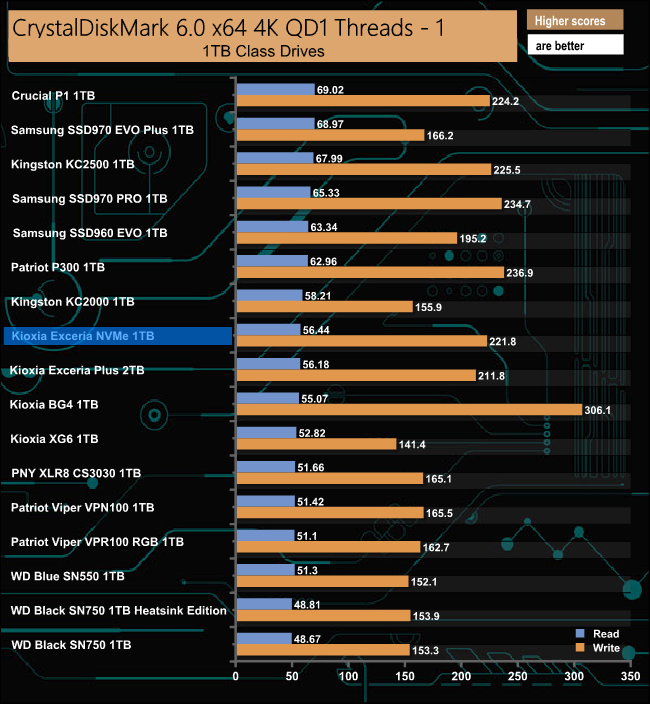
At a queue depth of 1, the Exceria NVMe performs well, sitting midway in our results chart.
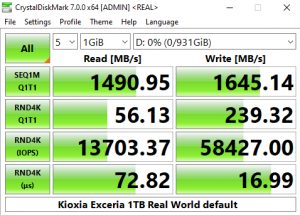
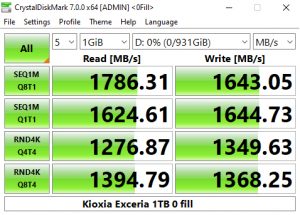
The latest version of CrystalDiskMark, version 7, includes a couple of profiles that can be used for testing – Peak Performance and Real World. The result screens for these two profiles not only display MB/s results but also IOPS and latency.
Looking at the Peak Performance results for Sequential read/write performance we could confirm both official Sequential performance figures. The drive is rated up to 1,700MB/s for reads, with the tested drive producing 1,762.82MB/s and up to 1,600MB/s for writes, with a test result of 1,642.64MB/s.
When it comes to random performance the drive is rated as up to 350,000 IOPS for reads and up to 400,000 IOPS for writes but as you can see from the Peak Performance results, the best we saw from the drive in the CDM 7 benchmark was 303,068 IOPS for reads and 318,261 IOPS for writes.
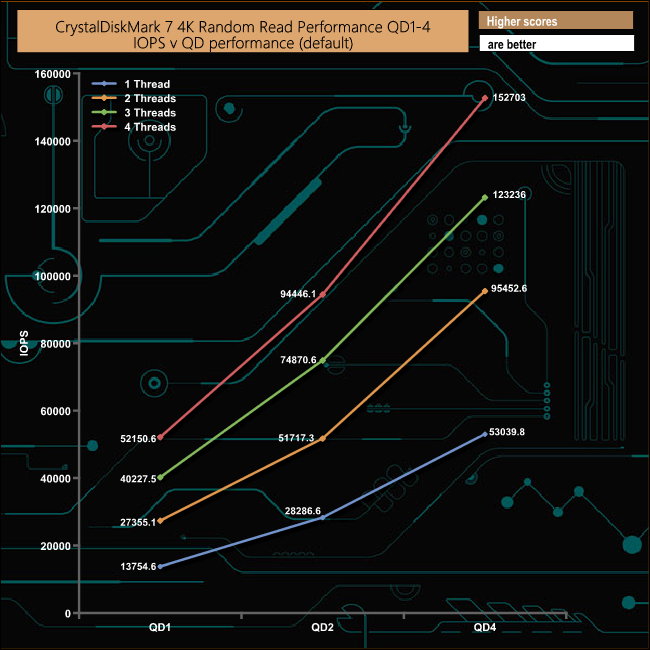
We also used CrystalDiskMark 7 to test the drive at lower queue depths (where most of the everyday workloads occur) using 1 to 4 threads. The read performance climbs smoothly throughout the tested queue depths and threads.
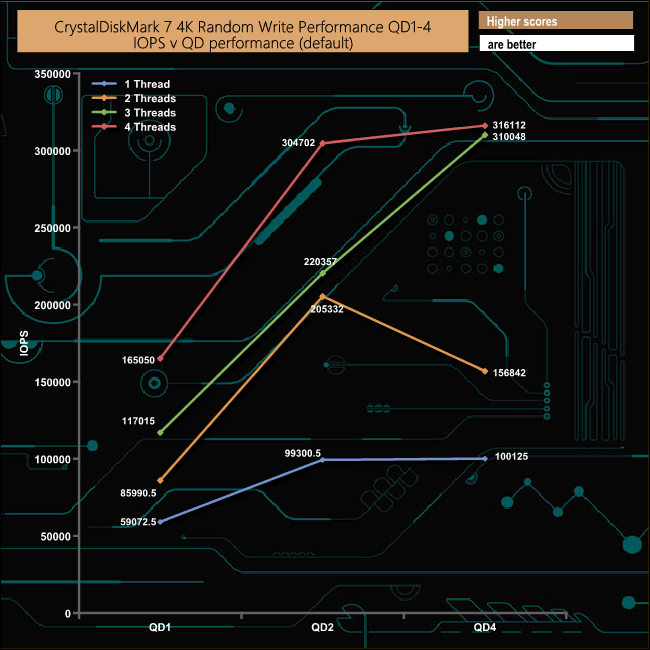
In the two threaded write test, the performance drops considerably from QD2 (841MB/s) to QD4 (642MB/s).
 KitGuru KitGuru.net – Tech News | Hardware News | Hardware Reviews | IOS | Mobile | Gaming | Graphics Cards
KitGuru KitGuru.net – Tech News | Hardware News | Hardware Reviews | IOS | Mobile | Gaming | Graphics Cards


